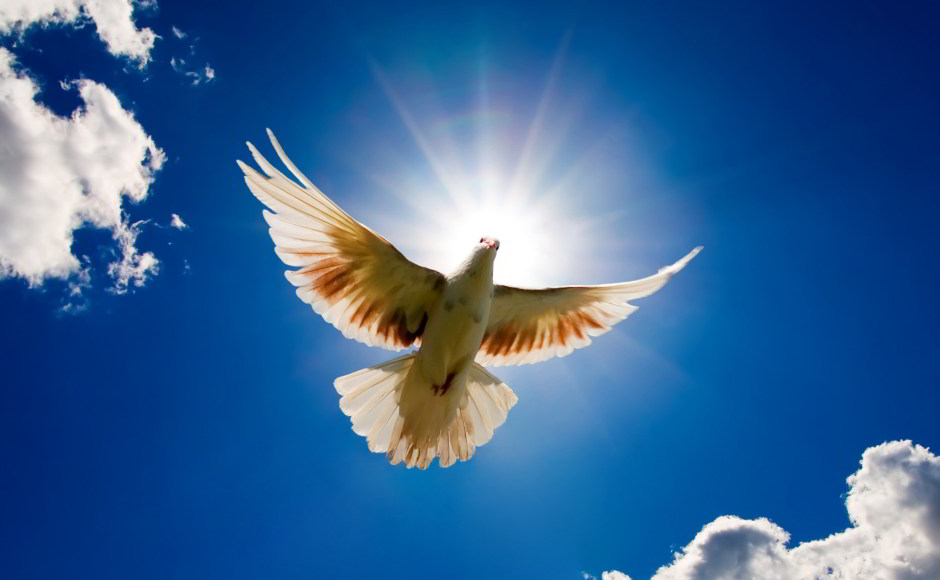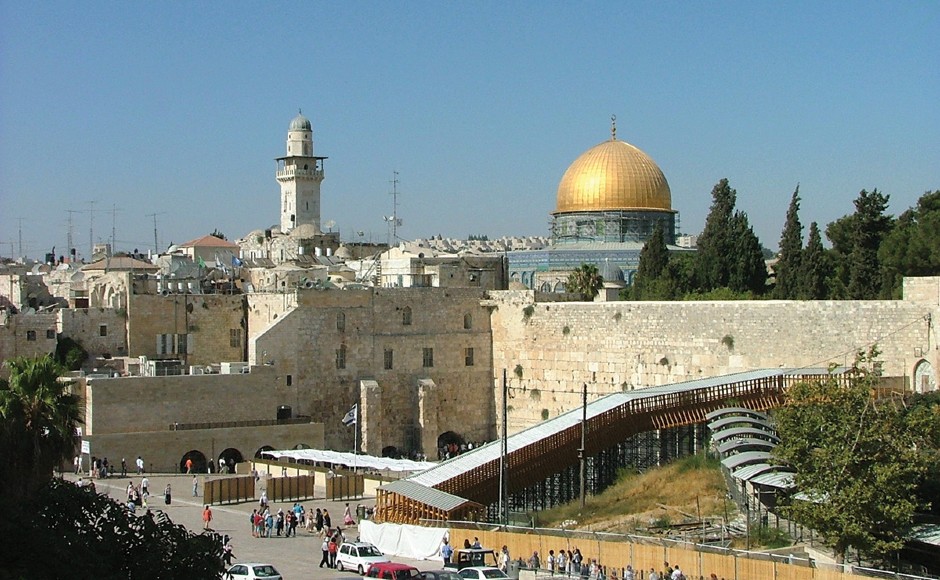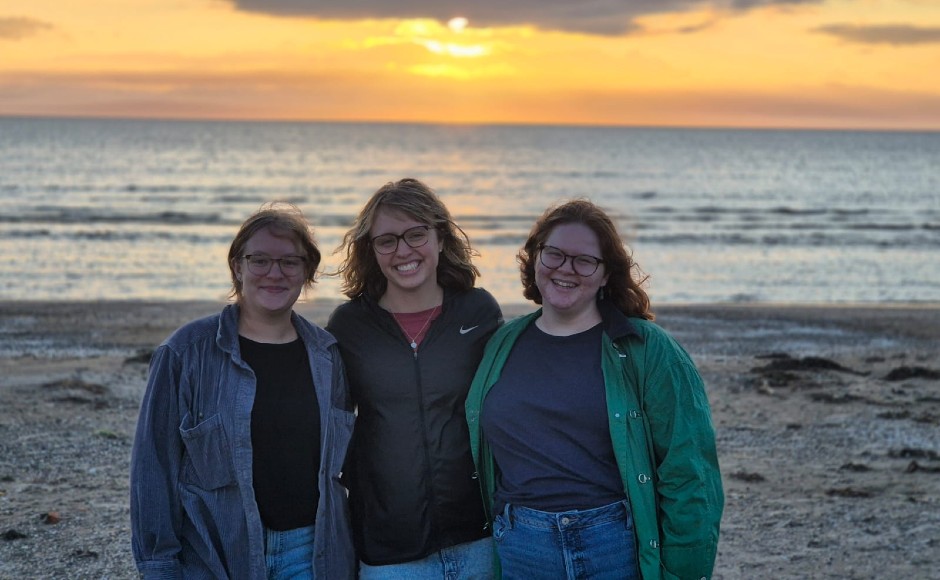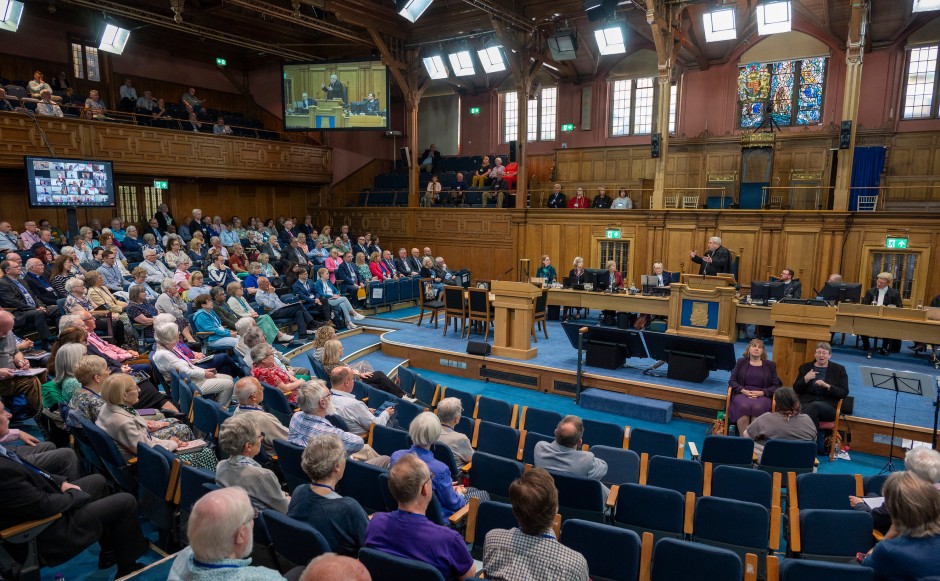Kirk calls first nuclear weapons treaty meeting “a glimmer of light and hope”
Published on 22 June 2022
The Church of Scotland has joined a group of international faith communities calling the first Meeting of the States Parties of the Treaty on the Prohibition of Nuclear Weapons (TPNW) in Vienna this week "a glimmer of light and hope" in a step towards global nuclear disarmament.

This milestone comes following last year's landmark announcement when the U.N's Treaty on the Prohibition of Nuclear Weapons came into force on 22 January 2021.
"Russia's invasion of Ukraine has shown how fragile Europe's peace and security is," Rev Karen Hendry, acting convener of the Church of Scotland's Faith Impact Forum, said.
"At this time of conflict and threat, we need to push harder than ever for alternatives for peace. The Treaty is a step in the direction for a world free of nuclear weapons, and where the huge sums of money which are spent on them can be diverted to help those in greatest need."
The statement, signed by the Church of Scotland's Faith Impact Forum on behalf of the Church of Scotland, which calls for the universalisation of the Treaty and for the disarmament of nuclear-weapon states, says:
"As faith communities from a diversity of traditions and located all over the world, we join together with one voice to mark this first Meeting of States Parties (MSP) to the Treaty on the Prohibition of Nuclear Weapons (TPNW). We welcome this historic occasion and celebrate this milestone that moves us closer to a world without nuclear weapons.
"We gather at a time when the threat of nuclear annihilation feels closer than before. So many more of us suffer from anxiety in response to the increasing threats by nuclear armed states. In the face of these urgent existential threats, we are more determined than ever to abolish nuclear weapons.
"We are acutely aware of the threats facing humanity and our beloved planet. From the devastating impacts of a global pandemic to the rising threat of climate catastrophe, the stakes for life on earth have never felt higher.
"Our faith traditions call us to denounce this misuse of resources and to call for greater international cooperation to end nuclear weapons forever. Nuclear weapons are a tool of domination and violent coercion in a time when we urgently need to prioritize human security. Our religious and spiritual traditions uphold an ethos of mutual aid, care for the stranger and trust in the community.
"We also urge all States to work for the universalisation of the TPNW, and invite all countries that have yet to ratify the treaty to do so in a timely manner. And finally, we urge all nuclear-weapon states to act in accordance with their commitment to nuclear disarmament and take concrete measures towards reducing nuclear threats.
"In a world that often seems bleak, we celebrate this first MSP as a glimmer of light and hope. Just as we come together to unite our voices and prayers beyond our own faith traditions, we applaud your commitment to multilateralism and diplomacy in a time of divisiveness and tensions.
"We stand with you to rid the world of nuclear weapons, and create a world where we can advance together for common security and mutual flourishing."
The Treaty was a culmination of global efforts led by ICAN, the International Campaign for the Abolition of Nuclear Weapons, which was awarded the Nobel Peace Prize in 2017 for its work.
The Church of Scotland's stance on nuclear weapons
For over 30 years the Church of Scotland has consistently condemned the existence and threat of nuclear weapons as sinful and an offence to God's created order.
With other churches in Scotland, the United Kingdom and around the world we have campaigned for disarmament and urged the countries that possess nuclear weapons to abide by their international treaty obligations and work together for a world free of nuclear weapons.
In 2018, the Kirk's General Assembly welcomed the establishment of an international Treaty on the Prohibition of Nuclear Weapons and urged the UK Government to engage with the treaty process as a way for the UK to disarm its nuclear weapons.


